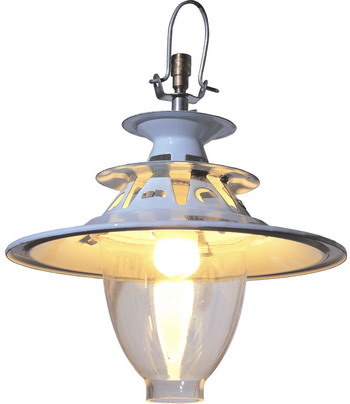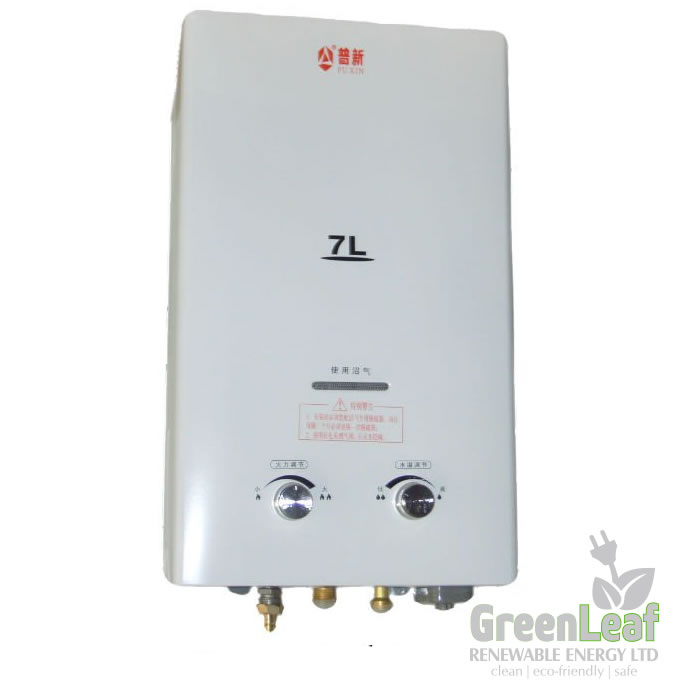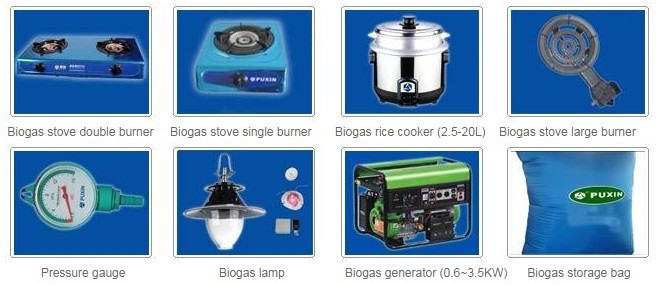No products in the cart.
#5 Biogas Appliances in Kenya You Need In Your Home Leave a comment
Biogas technology is transforming the way Kenyans access clean and affordable energy. As a country rich in agricultural resources and livestock populations, Kenya has immense potential to produce biogas – a renewable fuel generated from the decomposition of organic waste.
Biogas appliances in Kenya are specifically designed to tap into this resource, revolutionizing how people cook, heat, and generate power in their homes and businesses.
In this blog post, we’ll delve into the world of biogas appliances in Kenya, discussing their various types, benefits, where to find them, and the crucial factors to consider when making a purchase.
What is Biogas?

Let’s start with the basics.
Biogas is a mixture of gases, primarily methane and carbon dioxide. It’s produced through a process called anaerobic digestion, where organic materials such as animal manure, food waste, and crop residues are broken down by bacteria in an airtight container known as a biodigester.
The resulting biogas can be harnessed for a variety of energy needs.
Types of Biogas Appliances in Kenya
While we’ve covered the common categories, here’s a more detailed look at the various appliances available and insights into their specific uses:
1. Biogas Stoves

- Single-burner stoves: The most basic and widely used type, perfect for small households or as a secondary cooking source.
- Double-burner stoves: Ideal for families and those who cook multiple dishes simultaneously.
- Multi-burner stoves: These commercial-grade stoves have three or more burners, catering to restaurants, schools, and other institutions with high cooking demands.
- Oven-integrated stoves: Some models combine regular burners with a biogas-powered oven for baking and roasting.
2. Biogas Lamps

- Mantle lamps: These provide bright, white light. They use a gas mantle that glows when heated, similar to traditional kerosene pressure lamps.
- LED lamps: A more energy-efficient option, biogas powers LED lights for a long-lasting and stable source of illumination. These lamps often have adjustable brightness and may come with portable battery packs for on-the-go use.
3. Biogas Water Heaters

- Instant water heaters: These provide on-demand hot water, heating as it passes through the appliance. They’re efficient but may require higher biogas pressure.
- Storage tank heaters: Water is pre-heated in a storage tank, ideal for areas with fluctuating biogas pressure and ensuring a continuous supply of hot water.
4. Biogas Generators
- Small capacity generators (1-5 kW): Suitable for homes and small businesses for powering lights, essential appliances, and some electronics.
- Medium capacity generators (5-10 kW): Can handle heavier loads, like water pumps, larger appliances, and small workshops.
- Large capacity generators (10 kW and above): Designed for commercial and industrial applications where a consistent, high-power output is needed.
5. Biogas Refrigerators
- Absorption refrigerators: These operate on a heat exchange principle, using biogas to provide the heat source, ideal for completely off-grid situations.
- Modified Gas Refrigerators: Existing LPG refrigerators can be adapted to run on biogas with proper modifications for off-grid living.
Beyond the core categories, other appliances are emerging for diverse applications:
- Biogas Room Heaters: Provide warmth during cold weather, especially in high-altitude areas.
- Biogas Brooders: These offer a controlled environment for raising chicks and other young poultry, particularly in the agricultural sector.
- Biogas Incubators: Used in laboratories and hatcheries to keep eggs or biological samples at a stable temperature.
Important Considerations:
- Gas pressure: Different appliances have specific gas pressure requirements. Ensure compatibility with your biogas system pressure.
- Accessories: Piping, regulators, and valves are crucial for connecting and controlling the flow of biogas to appliances.
Benefits of Using Biogas Appliances in Kenya
Switching to biogas appliances in Kenya offers a multitude of benefits, including:
- Cost Savings: Biogas provides a cheaper source of fuel compared to LPG, kerosene, or firewood. Using biogas significantly reduces household energy expenses.
- Environmental Friendliness: Biogas production reduces greenhouse gas emissions by diverting organic waste from landfills and using a cleaner burning fuel than traditional sources.
- Improved Health: Indoor smoke pollution from wood and charcoal is a major health hazard. Biogas burns cleanly, creating a healthier cooking environment, especially for women and children.
- Waste Management: Biogas production helps manage waste sustainably, turning it into a valuable energy resource and a nutrient-rich slurry (bio-fertilizer) for farming.
- Energy Security: Biogas reduces dependence on unstable energy grids and fluctuating fuel prices, providing energy security for rural households and businesses.
Where to Find Biogas Appliances in Kenya
If you’re looking to purchase biogas appliances in Kenya, here’s where to find them:
- Biogas Companies: Several companies in Kenya specialize in biogas plant construction and the sale of biogas appliances. Some notable examples include Kenya Sunrise Eco Energy, GreenLeaf Renewable Energy, and Blueflame Energy Solutions.
- Biogas Technicians: Many certified biogas technicians also sell a range of biogas appliances and accessories.
- Online Marketplaces: Popular online platforms in Kenya often list biogas appliances for sale.
Let’s talk about the costs of biogas appliances in Kenya. Understanding the price ranges is crucial when budgeting for a biogas system.
Cost of Biogas Appliances in Kenya
The price of biogas appliances in Kenya varies depending on several factors, including:
- Type of appliance: Simple biogas stoves are generally the most affordable, while complex items like generators and refrigerators tend to be the most expensive.
- Size and capacity: Larger appliances with higher capacities usually have a higher price tag than smaller models.
- Brand and features: Popular brands and appliances with more advanced features may command a premium price.
- Seller: Prices can differ between biogas companies, technicians, and online platforms.
Approximate Price Ranges
To give you a general idea, here’s a rough estimate of the price ranges for common biogas appliances in Kenya (prices in Kenyan Shillings – KSh):
- Biogas stoves:
- Single-burner: KSh 3,000 – KSh 8,000
- Double-burner: KSh 6,000 – KSh 15,000
- Multi-burner: KSh 15,000 upwards
- Biogas lamps: KSh 2,000 – KSh 6,000
- Biogas water heaters: KSh 15,000 – KSh 40,000
- Biogas generators:
- Small capacity: KSh 40,000 – KSh 90,000
- Medium to Large capacity: KSh 100,000 upwards
- Biogas refrigerators: KSh 50,000 – KSh 120,000 (prices can vary significantly based on size and type).
Important Notes:
- These are approximate ranges. It’s always best to get quotes from different sellers for accurate pricing.
- Installation costs may be additional, depending on the complexity and the company or technician you choose.
- The cost of a biogas plant is a separate consideration if you don’t already have one installed.
Factors Affecting Cost
Here are some additional factors that can influence the price of biogas appliances in Kenya:
- Materials: Appliances made from durable materials like stainless steel will usually cost more.
- Import duties and taxes: Appliances imported from other countries may incur higher prices due to these charges.
- Market fluctuations: Currency exchange rates and supply and demand can also affect prices.
Tips for Finding Affordable Biogas Appliances in Kenya
- Compare prices: Obtain quotes from multiple sellers before finalizing a purchase.
- Look for sales and discounts: Some biogas companies offer promotions or discounts from time to time.
- Consider used appliances: In some cases, you may find well-maintained second-hand biogas appliances at a lower price. Ensure they’re in good working condition.
- Negotiate: Don’t be afraid to negotiate with sellers, especially if purchasing multiple items.
Factors to Consider When Buying Biogas Appliances in Kenya
- Quality and Durability: Choose high-quality appliances from reputable brands that are built to last. Look for appliances made from sturdy materials and with good warranties.
- Size and Capacity: Select biogas appliances that match your household size or business energy needs. Ensure the appliance’s capacity aligns with the amount of biogas your system can produce.
- Features and Efficiency: Compare features and energy efficiency ratings between different models to find the most suitable option for your needs.
- Price: Biogas appliances range in price. Set a budget and compare prices from different sellers. Look for quality products at a competitive price point.
- Technical Support: Ensure the seller provides adequate technical support, installation assistance, and after-sales services.
The Future of Biogas Appliances in Kenya
Biogas technology has the potential to significantly improve the lives of millions of Kenyans. Its widespread adoption could make a dent in energy poverty, reduce deforestation, and mitigate the negative impacts of climate change.
The Kenyan government’s commitment to promoting renewable energy, coupled with a growing awareness among citizens, point toward a bright future for biogas appliances in Kenya.
Here are some exciting possibilities on the horizon:
- Increased Affordability: As biogas technology matures and economies of scale kick in, we can expect a reduction in the price of biogas appliances, making them even more accessible.
- Technological Innovation: Ongoing research is focused on developing more efficient biogas appliances, increasing their range, and broadening their applications.
- Micro-Grid Systems: Biogas can integrate with other renewable sources like solar. These micro-grids offer energy independence for remote communities.
- Commercial Applications: Biogas adoption is growing in industries like agriculture, hospitality, and manufacturing, driving demand for large-scale appliances.
Addressing Challenges
To fully realize the potential of biogas appliances in Kenya, it’s important to address some existing challenges:
- Awareness and Education: Many people are unfamiliar with biogas technology and its advantages. Educational campaigns and demonstrations are crucial to raising awareness.
- Financing: The initial cost of a biogas system and appliances can be a barrier. Financing mechanisms and micro-credit schemes are key to improving accessibility.
- Technical Expertise: There’s a need for more trained biogas technicians to ensure proper installation, maintenance, and repair of biogas systems and appliances.
What To Do Next
If you’re passionate about sustainable living, want to save on energy costs, and contribute to a cleaner environment, then consider investing in biogas appliances in Kenya. Here’s what you can do:
- Research: Learn more about biogas technology, its applications, and how to build a biogas plant if you have the resources.
- Find a Reliable Seller: Contact reputable biogas companies or technicians to explore biogas product options.
- Spread Awareness: Share the benefits of biogas appliances with your family, friends, and community.
Wrap!
Biogas appliances in Kenya represent a smart and sustainable solution to the country’s energy challenges. As technology advances, becomes more accessible, and awareness grows, we can expect more homes and businesses to embrace cleaner, cheaper, and healthier biogas options.
And trust me, by making the switch, you’re not only improving your own life but also contributing to a more sustainable future for Kenya.
Read also:

